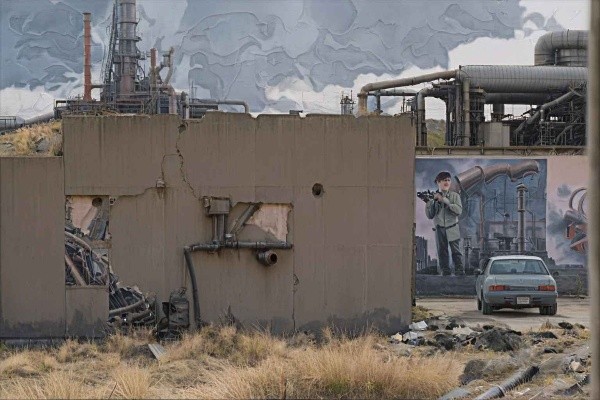Iran’s Unyielding Stance Against Israeli Aggression: A Complex Geopolitical Struggle
In the eyes of many, the Islamic Republic remains the last bastion in the Muslim world against unchecked Israeli aggression
Loading...

And recent Iraqi history can tell us how.
Historical Precedent: Iraq’s Nuclear Program
Recent tensions between Iran and Israel have sparked speculation about a potential Israeli military response, particularly in light of Iran's missile attack on Israel on October 1, 2024, following the deaths of key Hezbollah and Hamas leaders. Observers have debated whether Israel might target Iran’s oil or nuclear facilities. While the Biden administration appears to disapprove of these options, it has nonetheless deployed a Terminal High Altitude Area Defense (THAAD) system to Israel, seemingly preparing for possible Iranian retaliation.
In contrast, former President Donald Trump and his allies, including Jared Kushner, have urged Israel to take a more aggressive stance, advocating for an immediate strike on Iran’s nuclear capabilities. However, this perspective overlooks the lessons from a similar Israeli operation in 1981 when Israel bombed Iraq’s Osiraq nuclear reactor. This attack did not dismantle Iraq's nuclear ambitions; instead, it galvanized Iraqi leader Saddam Hussein's determination to pursue nuclear weapons, demonstrating how aggression can backfire.
The 1981 Attack on Osiraq: A Case Study
Iraq's nuclear program began in the 1960s with Soviet assistance, later expanding with a French-built reactor in the 1970s. Despite being a signatory to the Nuclear Non-Proliferation Treaty and subject to regular inspections by the International Atomic Energy Agency (IAEA), Iraq was falsely painted as being on the verge of developing nuclear weapons by Israel. Under domestic pressure and facing upcoming elections, Israeli Prime Minister Menachem Begin decided to launch a pre-emptive strike.
On June 7, 1981, Israeli fighter jets successfully destroyed the Osiraq reactor, killing three Iraqi civilians and a French engineer. While this act momentarily rallied nationalistic sentiments within Israel, it failed to dismantle Iraq’s nuclear aspirations. Instead, it prompted a surge in interest among Iraqi scientists to develop their nation’s nuclear capabilities, as reflected in the words of Iraqi nuclear scientist Jafar Dhia Jafar, who noted that many were eager to counter Israel’s dominance in nuclear technology.
Following the attack, Iraq’s nuclear initiatives became clandestine, with the regime seeking assistance from nuclear powers like Pakistan to advance its weapons program. These efforts were only significantly curtailed by the Gulf War and international sanctions in the early 1990s.
The Current Landscape: Iran’s Nuclear Aspirations
Fast forward to today, and the situation in Iran mirrors the past. Following a series of targeted assassinations of Iranian nuclear scientists, including the high-profile killing of Mohsen Fakhrizadeh in 2020, there has been a notable rise in Iranian “nuclear nationalism.” Attacks on Iran’s nuclear program have fostered a strong public sentiment favoring the development of nuclear capabilities, with recent polls showing that 69% of Iranians support acquiring nuclear weapons.
Israel’s aggressive posture towards Iran only strengthens the resolve of the Iranian government and its people to continue pursuing nuclear capabilities. A potential strike on Iran’s nuclear facilities would likely have the same effect as the Osiraq bombing—a move that may drive Iran’s nuclear program underground and accelerate its development of nuclear weapons.
Conclusion: The Dangers of Escalation
As Israeli Prime Minister Benjamin Netanyahu navigates a politically precarious landscape, mirroring Begin’s challenges, he risks repeating history. His government’s actions in Gaza, Lebanon, and potentially Iran may not yield the desired “victory” but instead breed further resentment across the Middle East. This resentment could empower Iran and its allies to recover quickly from any setbacks caused by Israeli military actions. The lessons from Iraq’s nuclear experience serve as a stark warning: military strikes may only entrench adversaries’ resolve and propel them closer to the very weapons their aggressors seek to eliminate.
Editor
In the eyes of many, the Islamic Republic remains the last bastion in the Muslim world against unchecked Israeli aggression
Analysts say US push for Gaza post-war phase is ‘unrealistic’ as Israel vows to continue fighting in besieged territory.
Here’s why the US and its allies are afraid of real military cooperation between Tehran and Moscow
